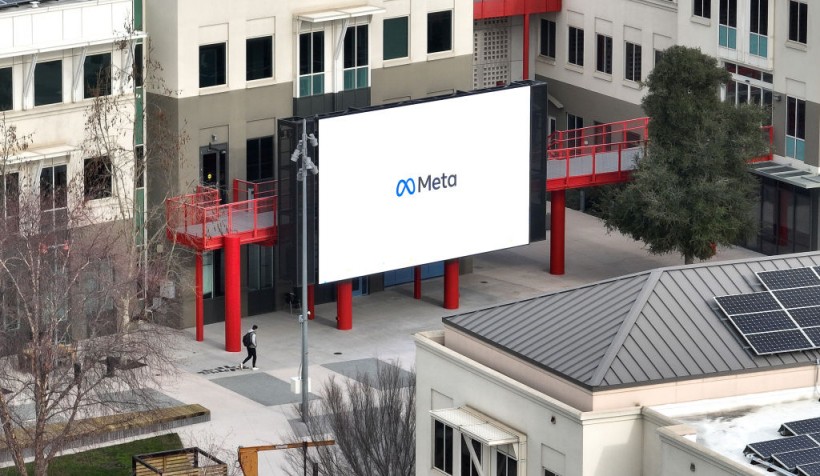The Federal Trade Commission accused Meta of violating a suite of child privacy protections for monetizing children's data on its platform. This misleads parents about the protection of children on the platform, hence why FTC proposes a ban on Meta.

(Photo : Justin Sullivan/Getty Images)
MENLO PARK, CALIFORNIA - FEBRUARY 02: In an aerial view, a worker walks by a large video monitor on the Meta campus on February 02, 2023 in Menlo Park, California. Facebook's parent company Meta reported better-than-expected fourth quarter earnings with $32.17 billion in revenue. The company's stock surged 23 percent for its best trading day in close to a decade.
Proposing Restrictions
Meta received proposed restrictions from the Federal Trade Commission after finding several gaps and weaknesses in Facebook's privacy program that violates Children's Online Privacy Protection Act. NBC News reported that among the restrictions is banning Meta from profiting off the data collected from users under 18 years old.
This proposal makes FTC's third time to take action against the company for violating users' privacy. FTC believes that Facebook has been misleading parents regarding how much control they had over who their children had contact with within the platform. As per the agency, Meta was deceptive about how much access app developers had to users' private data.
Bureau of Consumer Protection Director Samuel Levine, "Facebook has repeatedly violated its privacy promises. The company's recklessness has put young users at risk, and Facebook needs to answer for its failures."
Aside from Facebook, the proposed restrictions expand to concerns regarding how the social media engaged children on their platforms as Instagram developed a kids' version under 13 until public scrutiny halted the company to remove the project in 2021.
FTC also seeks to stop launching new products and offerings without the approval of an independent privacy assessor that would require explicit user consent for any use of facial recognition technology. This would apply to all of Meta's properties, including Facebook, Instagram, Oculus, and WhatsApp.
Meta's Response
In response to FTC's proposal, Meta Spokesperson Andy Stone stated that this move from the agency is a political stunt as they failed to act against Chinese companies like TikTok. Reuters reported that Meta accused the agency of attempting to take over the authority of Congress in order to set standards, affecting a wide range of the industry.
"We have spent vast resources building and implementing an industry-leading privacy program under the terms of our FTC agreement. We will vigorously fight this action and expect to prevail," Stone added.
Meanwhile, FTC Commissioner Albvaro Bedoya casts his doubt on the FTC's authority to modify its orders in this manner despite voting to move forward with the proposal. The Verge reported that Bedoya looks forward to hearing additional information and arguments to consider these issues with an open mind.
Halting Meta's operations is only the first step of the FTC a process to strengthen Meta's privacy and security practices. The company was asked to respond within 30 days to its findings and proposal to proceed with the voting on whether to alter or adopt the proposed restrictions.
Related Article: FTC Withdraws Antitrust Complaint Against Meta for Within Unlimited Acquisition






